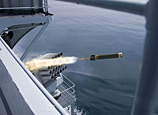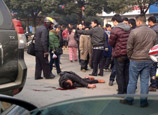
Only death and taxes are inevitable, the old saying goes. But new ways of levying more taxes can always seem quite surprising. One enterprising official even used the threat of a war between China and Japan on the Diaoyu Islands to put the squeeze on entrepreneurs.
Li Jianguo, a businessman from Xianxian county, Cangzhou in Hebei Province, was among them. The official told Li that he predicted war was coming after reading the People's Daily, the Beijing News reported in late November.
He was told to pay an extra 70,000 yuan ($11,242) in tax, five to six times his usual yearly tax contribution, and equivalent to 50 percent of his annual profit. He doubted the legality of the move since the bank details provided belonged to a tax officer and not the local tax bureau.
Another businessman from the same county, Zhang Shun, was also asked for money but was spared such a wild tale.
Zhang owns a steel processing firm, a common industry in Hebei. The local tax bureau invited him to a conference in late October, along with other entrepreneurs.
Officials asked them to pay extra taxes for that year, and "reminded" Zhang that otherwise they would check his account books. Like Zhang, most businessmen feared a full inquiry, in case any irregularities turn up.
The extra taxes Zhang and Li were asked to pay have been called an "overhead levy" by experts. It refers to a practice by tax departments, charging enterprises excessive taxes under the guise of various excuses. In reality, they are simply collecting taxes in advance or directly taking in extra taxes.

















 A web user recently posted a photo of a twisted building in the suburb of Beijing, calling it "Tower of Large Intestine".
A web user recently posted a photo of a twisted building in the suburb of Beijing, calling it "Tower of Large Intestine".


![]()
